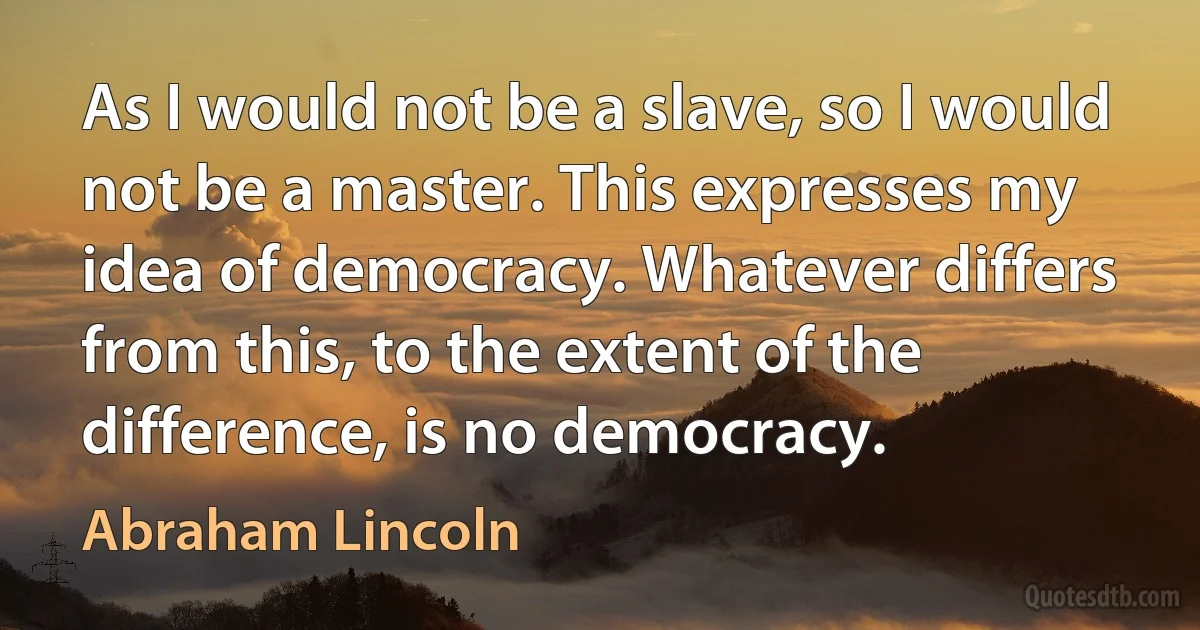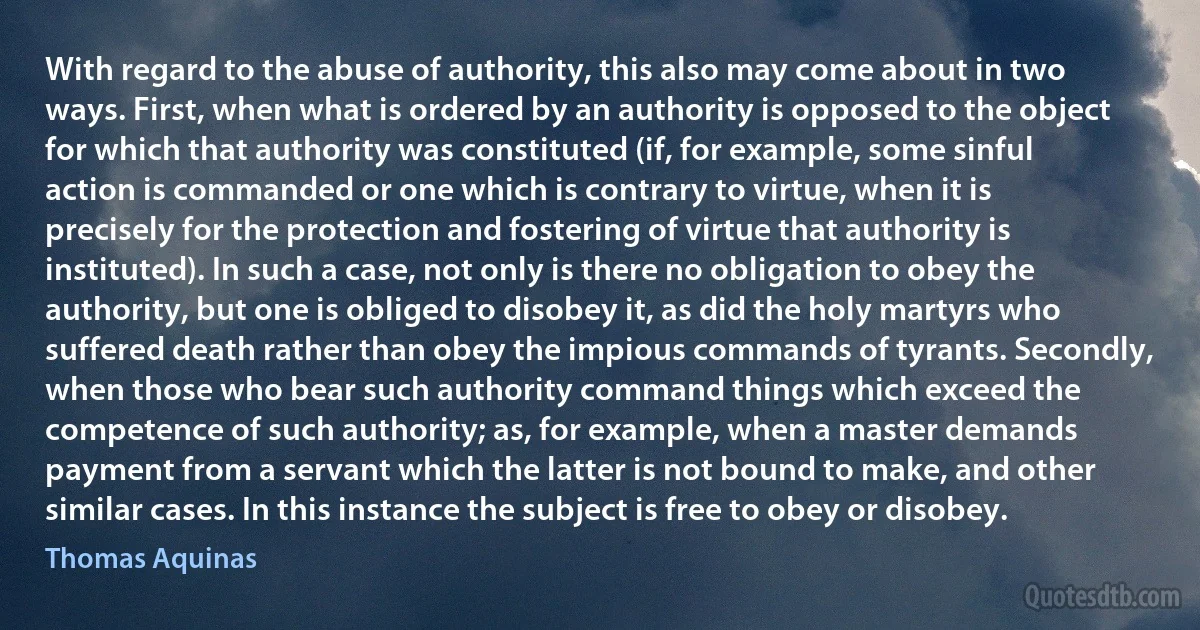Master Quotes - page 35
In immediate self-consciousness the simple ego is absolute object, which, however, is for us or in itself absolute mediation, and has as its essential moment substantial and solid independence. The dissolution of that simple unity is the result of the first experience; through this there is posited a pure self-consciousness, and a consciousness which is not purely for itself, but for another, i.e. as an existent consciousness, consciousness in the form and shape of thinghood. Both moments are essential, since, in the first instance, they are unlike and opposed, and their reflexion into unity has not yet come to light, they stand as two opposed forms or modes of consciousness. The one is independent whose essential nature is to be for itself, the other is dependent whose essence is life or existence for another. The former is the Master, or Lord, the latter is the Bondsman.

Georg Wilhelm Friedrich Hegel
The inclination to act as the laws command, a virtue, is a synthesis in which the law ... loses its universality and the subject its particularity; both lose their opposition, while in the Kantian conception of virtue this opposition remains, and the universal becomes the master and the particular the mastered.

Georg Wilhelm Friedrich Hegel
Einstein repeatedly argued that there must be simplified explanations of nature, because God is not capricious or arbitrary. No such faith comforts the software engineer. Much of the complexity he must master is arbitrary complexity [...] because they were designed by different people, rather than by God.

Fred Brooks
Apparently an "art"-which almost by definition cannot be put into words-is probably best communicated by approaching it from many sides and doing so repeatedly, hoping thereby students will finally master enough of the art, or if you wish, style, to significantly increase their future contributions to society.

Richard Hamming
Program designers have a tendency to think of the users as idiots who need to be controlled. They should rather think of their program as a servant, whose master, the user, should be able to control it. If designers and programmers think about the apparent mental qualities that their programs will have, they'll create programs that are easier and pleasanter - more humane - to deal with.

John McCarthy (computer scientist)
Suicide evokes revulsion with horror, because everything in nature seeks to preserve itself: a damaged tree, a living body, an animal; and in man, then, is freedom, which is the highest degree of life, and constitutes the worth of it, to become now a principium for self-destruction? This is the most horrifying thing imaginable. For anyone who has already got so far as to be master, at any time, over his own life, is also master over the life of anyone else; for him, the door stands open to every crime, and before he can be seized he is ready to spirit himself away out of the world. So suicide evokes horror, in that a man thereby puts himself below the beasts. We regard a suicide as a carcase, whereas we feel pity for one who meets his end through fate.

Immanuel Kant
I would like to hear more of the consummate melodic master, but I feel that big business and his record company have had a corrupting influence on his material. The rock and pop thing certainly draws a wider audience. It happens more and more these days, that unqualified people with executive positions try to tell musicians what is good and what is bad music. It's tempting for the musician to prejudice his own views when recording opportunities are so infrequent but I for one am determined to resist the temptation.

Miles Davis
The softer you find your child is, the more you are to seek occasions, at fit times, thus to harden him. The great art in this is, to begin with what is but very little painful, and to proceed by insensible degrees, when you are playing, and in good humour with him, and speaking well of him: and when you have once got him to think himself made amends for his suffering by the praise is given him for his courage; when he can take pride in giving such marks of his manliness, and can prefer the reputation of being brave and stout, to the avoiding a little pain, or the shrinking under it; you need nor despair in time and by the assistance of his growing reason, to master his timorousness, and mend the weakness of his constitution.

John Locke
There is not a negro from the coast of Africa who does not, in this respect, possess a degree of magnanimity which the soul of his sordid master is too often scarce capable of conceiving. Fortune never exerted more cruelly her empire over mankind, than when she subjected those nations of heroes to the refuse of the jails of Europe, to wretches who possess the virtues neither of the countries which they come from, nor of those which they go to, and whose levity, brutality, and baseness, so justly expose them to the contempt of the vanquished.

Adam Smith
We preach freedom around the world, and we mean it, and we cherish our freedom here at home, but are we to say to the world, and much more importantly, to each other that this is a land of the free except for the Negroes; that we have no second-class citizens except Negroes; that we have no class or caste system, no ghettoes, no master race except with respect to Negroes?

John F. Kennedy

![When the man governed by self-interest, the god of this world, does not renounce it but merely refines it by the use of reason and extends it beyond the constricting boundary of the present, he is represented (Luke XVI, 3-9) as one who, in his very person [as servant], defrauds his master [self- interest] and wins from him sacrifices in behalf of "duty.”. (Immanuel Kant)](https://cdn.quotesdtb.com/img/quotes_images_webp/58/immanuel-kant-behalf-beyond-295458.webp)

